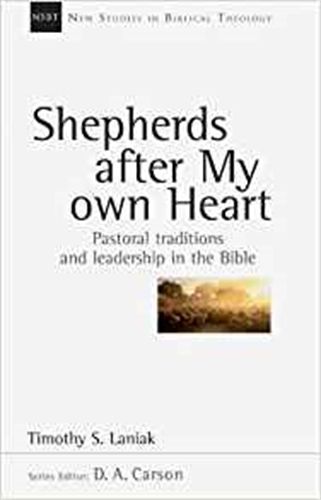
Most of the Bible's pastoral imagery is grounded in two traditions: Israel's 'wilderness drama', in which Moses functioned as God's under-shepherd; and the shepherd-king David and his dynasty, with its messianic promises. Old Testament prophets like Jeremiah made sustained use of pastoral imagery, seeing the LORD revealing himself as the ultimate Shepherd of his flock, and creating expectation of a new exodus, a renewed community, and a unique shepherd king.
These traditions provided prototypes for leaders that followed, and formed the background for the ministry of Jesus - the 'good shepherd' - in the Gospels. His disciples were sent as shepherds to feed his sheep - and as sheep among wolves. The pastoral role was central to the ongoing life of local churches in the Christian movement, and today's pastors are still called to be shepherds after God's own heart, to lead his people, living on the margins of settled society, to their eternal home.
In this excellent study, Timothy Laniak draws on a wide range of Old and New Testament texts to develop a biblical theology of 'shepherd' imagery, and concludes with some principles and implications for contemporary 'pastoral' ministry.
These traditions provided prototypes for leaders that followed, and formed the background for the ministry of Jesus - the 'good shepherd' - in the Gospels. His disciples were sent as shepherds to feed his sheep - and as sheep among wolves. The pastoral role was central to the ongoing life of local churches in the Christian movement, and today's pastors are still called to be shepherds after God's own heart, to lead his people, living on the margins of settled society, to their eternal home.
In this excellent study, Timothy Laniak draws on a wide range of Old and New Testament texts to develop a biblical theology of 'shepherd' imagery, and concludes with some principles and implications for contemporary 'pastoral' ministry.



